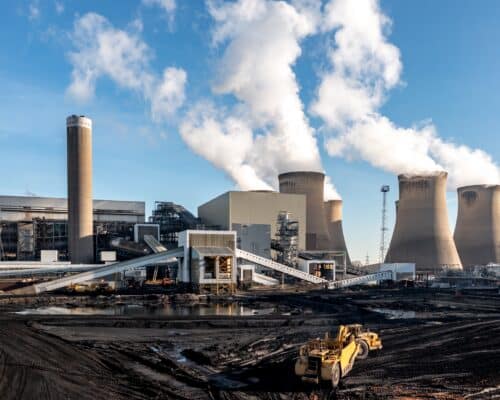Japan
Japan’s Energy Policy Is Turning It Into the World’s Climate Villain
Japan is quickly becoming the odd one at the table of the G7 regarding climate policies. Scientists, analysts and environmental and societal groups see it as the culprit of climate change inaction. It is time for Japanese governmental and corporate leadership to change that perception.

Japan’s G7 Fossil Fuel Push – Podcast
Susanne Wong, at Oil Change International, speaks about Japan and the fossil fuel push at the G7.
Japan’s Priorities as G7 President
Japan's priorities as G7 president appear to centre around trade, energy security and digitalisation. While not surprising, there are still questions as to how Japan will align these issues with existing G7 initiatives.
Japan’s Ammonia Plans Threaten the Carbon Emissions Reduction of Southeast Asia
Aside from a few positive outcomes, the G7 ministerial meeting ended disappointingly due to a final communique with vague wording and weak commitments. This sets the stage for Japan to continue doing business as usual.
G7 Summit 2023: What to Expect
Japan is hosting the G7 summit for 2023 in Hiroshima. It will be a pivotal meeting for climate action as Japan continues to fall out of step with fellow G7 nations. Will Japan use its presidency to continue this trend or make changes?
Current State And Future Of Japan’s Carbon Emissions
Japan produces the fifth-most carbon dioxide emissions annually, and in the G7, it only falls below the United States. While the country does have a net-zero goal for 2050 and an interim goal for 2030, its current decarbonisation strategy may not be feasible. It relies on decarbonising the fossil fuel industry, a strategy climate experts warn against.
Japan’s Natural Gas Dependence: A Liability For the G7
Japan imports over 90% of its natural gas. As a result, it is reliant on the global LNG market and current events to dictate supply and energy costs. This is a liability that was highlighted in 2022 due to the country's dependence on Russian natural gas. Developing a robust renewable energy grid is the only viable long-term solution.
Japan’s ‘Green Transformation’ (GX) Is Stacked With Fossil Fuel-based Technology
Japan is promoting its green energy transformation, but it's a false narrative since it still includes liquefied natural gas (LNG), coal and fossil fuel-based technology. Japan must also quickly set forth a formal coal reduction and elimination plan before it hosts the next G7 meeting in May.
Fossil Fuel Imports Risk Japan’s Energy Security
Japan has low domestic fossil fuel production yet relies on fossil fuels for most of its energy. High dependence on foreign imports is creating energy security concerns. However, Japan remains seemingly uncommitted to completely phasing out fossil fuels, lagging behind other G7 nations.

G7 Ministers’ Meeting 2023: What Is the Desired Outcome?
The G7 Climate and Energy Ministerial Meeting is shaping up to be a roadshow for Japan's questionable technologies. If the world is to stand a chance in limiting climate change to 1.5°C, the G7 reject the proposals, speed up coal phase-out and limit gas investments.
Japan-Vietnam Energy Relations: Opportunities and Risks
Vietnam needs a partner that will prioritise its decarbonisation and access to affordable and ready-to-be deployed solutions to make the most of its clean energy potential. It doesn't need to be pushed towards distracting technologies with questionable decarbonisation credentials. The approach that Japan will take in its cooperation remains to be seen.
Japan’s Sustainability Programs Are Lacking Compared to G7
Japan is hosting the G7 summit in 2023, which will include discussions on decarbonisation and renewable energy development. However, Japan's sustainability efforts are considered some of the poorest of the G7 nations. The country's financing of fossil fuel projects throughout Asia, its reliance on coal and its questionable strategy towards decarbonisation are all concerns. As the host, Japan should promote sustainability efforts.
Most Popular
Categories
-
10
-
35
-
126
-
4
-
17
-
46
-
52
-
11
-
10
-
15
-
24
-
6
-
1
-
5
-
6
-
285
-
200
-
17
-
24
-
1
-
1
-
23
-
41
-
44
-
88
-
18
-
86
-
41
-
17
-
11
-
43
-
54
-
86
-
299
-
22
-
44
-
36
-
11
-
42
-
36

